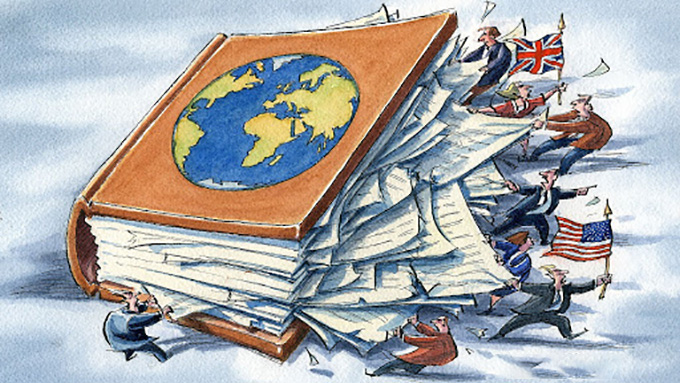
On his first day in office, President-elect Biden vows to take swift action to ensure that the US rejoins the World Health Organization and Paris Climate Accord. But while the US might be about to rejoin the international community, it should not return to its old role as “leader of the free world”.
That archetype no longer serves the interests of the US – which is no longer willing to bear the costs – or the international community – which has got used to a more consensus-based international order. Accordingly, the new administration will need to learn to lead laterally – as a collaborator and coordinator. This is where American universities can help.
Working through global networks such as the U7+ Alliance of World Universities, higher education institutions are now positioned to serve as crucial sources of policy innovation and social impact. During this year’s second annual U7+ summit, hosted at Northwestern University, nearly 100 university leaders from 17 countries gathered virtually to discuss how higher education can play a key role in a “track-two diplomacy” that has so often bolstered fragile “track one” diplomatic relations.
During the summit, held at the end of November, university presidents unanimously voted to create new opportunities for mutual understanding and equitable resource sharing across generations through direct engagement with the G7 group of nations. This builds on previous U7+ Alliance commitments and work to set targets for reducing greenhouse gas emissions, identify best practices for less carbon-intensive globalisation, and establish guidelines for the ethical use of AI and digital technology.
Many academics already collaborate to conduct and publish research on global challenges, but universities historically haven’t coordinated across national borders to push a common agenda. They haven’t operated as global actors in their own right, alongside formal G7 engagement groups such as the Business7, Science7 and Women7. Yet, unlike other sectors of society beholden to short-term election or sales cycles, universities are uniquely poised to take the “long view” on policy issues and advocate for intergenerational justice – ensuring that solutions to global challenges are developed in a way that takes the interests and rights of future generations into account.
Robust global networks of universities with US institutions at their heart can be activated to rebuild American credibility and pursue coordinated global agendas on issues such as health, climate change, inequality and digital innovation. As a formal G7 engagement group, the U7+ Alliance can take coordinated action to bring scientific evidence to the fore of policy debates on these issues. Consisting of top-tier universities from across the globe, the alliance can also mount credible international information campaigns to cut through the cacophony of fake news and encourage the millions of young people they collectively serve to elevate and amplify science.
The U7+ is already building relationships with G7 leaders, including with the organisers of the 2021 G7 meeting in the UK. Alliance members from the US and dozens of other countries have also already self-organised into working groups dedicated to taking concrete actions that contribute to attaining the United Nations’ Sustainable Development Goals, which 193 countries have adopted.
If the past four years have proved anything, it’s that, despite the attempts to kill it, multilateralism isn’t dead. It just looks and feels more inclusive than it used to – and how could it not as a new generation of citizens and political leaders less beholden to the legacy of the Second World War takes charge? The new UN treaty on the prohibition of nuclear weapons, championed by NGOs and acceded to primarily by countries in the Global South, despite strong lobbying against it by the US – is an example of the new diplomacy at work, within which American leadership is not accepted as a given.
The new American leadership will be as one among a number of nations within a new geopolitical order – one in which networked power supplants super power and distributed leadership trumps hegemony. A punishing dose of humility for American diplomatic gaffes and betrayal of our allies over the past four years may serve as the perfect antidote to a previous overabundance of US pride and exceptionalism.
Big global problems require coordinated solutions, but the Biden administration must employ new diplomatic resources to address them. Higher education institutions with the scientific knowledge, the moral obligation and, now, the structure for coordination can play a pivotal role in developing and promoting those solutions.
Author Bio: Annelise Riles is Professor and Executive Director of the Roberta Buffett Institute for Global Affairs at Northwestern University.
